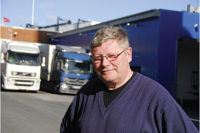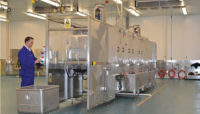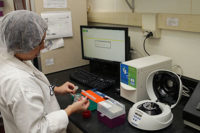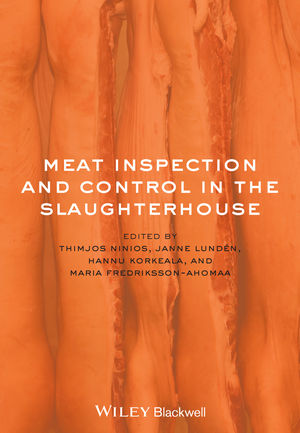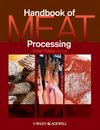Protein Problem Solver: Making the safest sausages possible
An investment in metal detection improves Cher-Make Sausage’s food-safety capabilities.

Many companies promote “authentic” products, but Cher-Make Sausage Co. of Manitowoc, Wis., is in a unique position to make such a claim. In 1926, company founder Emil Chermak decided to share his collection of Old World sausage recipes with his neighbors. Eighty-five years later, Cher-Make continues to produce a variety of hardwood-smoked sausage products, made with the same attention to detail and care.
Cher-Make’s product line includes numerous types of summer sausages, natural-casing wieners, skinless hot dogs, ring bologna, specialty sausages and bratwursts. They can be found throughout the upper Midwest. Along with its own brand, the company has been active in the private-label business for more than 40 years, shipping products nationwide.
As any company’s legacy is dependent on both the quality and safety of its food, Cher-Make has made a large investment in upgrading its metal-detection capabilities.
“Obsolescence was a financial drain,” notes Fred Konchan, plant manager for Cher-Make Sausage. “We had multiple metal detectors here that are the previous generation and are no longer supported. All that can be done is to purchase a brand new metal detector.”
Rather than purchase another unit that would become obsolete in a few years, the company purchased Fortress metal detectors, which, Konchan notes, have been supported since Day One. Every new upgrade can be installed on any Fortress machine, eliminating the need to buy a new piece of equipment.
Konchan adds that replacement of Fortress’ individual electronic components costs thousands of dollars less than other equipment on the market, in the event of a failure. Instead of paying $3,000 for a single component, every spare board and operator interface on a Fortress unit can be replaced for $2,000. Purchasing a newer board also brings the benefit of upgrading an old metal detector to the newest technology.
Cher-Make is using Stealth detectors in its summer sausage lines. Part of the summer sausage packing line involves removing the clip, which is done with a declipper.
“Sometimes, the declipper will hit the clip, causing metal shavings,” Konchan says. “Inline with the declipper is one of two Fortress Stealth metal detectors. After packaging, another Fortress Stealth is in line before boxing.”
During the testing process, the Fortress equipment proved to be the easiest for the operators to calibrate, and it was more sensitive, with fewer false rejects. Every event is logged automatically for download, from the hourly calibrations to the actual rejects. Every event is also time-stamped and can be sent wirelessly to QA for assessment and trend reporting.
For more information on Fortress Technology, call (416) 754-2898 or visit www.fortresstechnology.com.
Looking for a reprint of this article?
From high-res PDFs to custom plaques, order your copy today!



